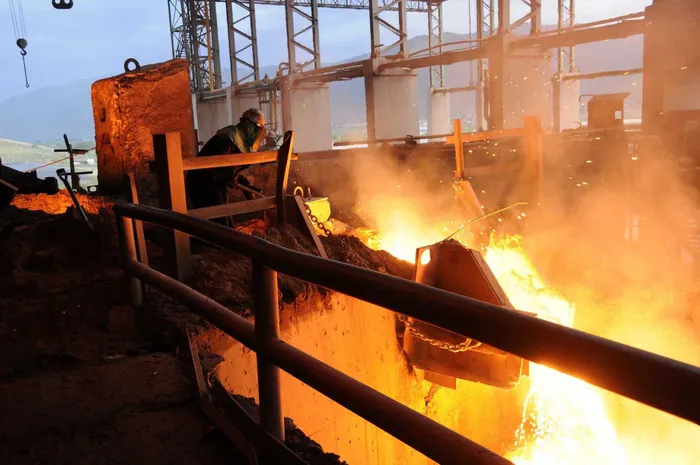
These anticipated job losses at South African ferrochrome operations are attributed largely to economic strains, particularly escalating electricity tariffs and a downturn in ferrochrome prices.
Image: Supplied
Intensive Energy Users have released a stark warning regarding the ongoing challenges posed by remarkably high electricity prices in South Africa.
This comes alongside alarming revelations from the National Union of Mineworkers (NUM), which has echoed concerns over reported potential retrenchments by major players Glencore and Samancor.
These anticipated job losses at South African ferrochrome operations are attributed largely to economic strains, particularly escalating electricity tariffs and a downturn in ferrochrome prices.
NUM chief negotiator Lefty Mashego expressed profound concern over unofficial hints from management at both companies during ongoing negotiations.
"The NUM urges these companies to reconsider their commitment to South Africa. Should they decide they are no longer able to operate, we call on them to surrender their mining and operating licenses," Mashego said.
"The jobs at the 10 smelters—including Glencore’s Boshoek, Wonderkop, and Lion facilities, and Samancor’s Ferrometals, Middelburg Ferrochrome, Tubatse Ferrochrome, Tubatse Alloys, Dikwena, and TC Smelter—are vital to the economic stability of the communities that depend on them."
In a parallel response, the Energy Intensive Users Group (EIUG) affirmed that electricity prices have been an ongoing challenge for its members, especially as Eskom has implemented numerous double-digit price increases over the past two decades.
EIUG CEO Fanele Mondi said consequently, electricity consumption by large power users in the Industrial and Mining sectors has decreased by 23% between 2008 and 2024, while the number of customers has declined by 709 (17%) during the same period.
"This trend indicates the shutdown of some operations over the years," Mondi said.
"Although power interruptions related to energy security have diverted attention from electricity affordability in recent years, the issue of energy affordability is becoming increasingly prominent as we make progress in addressing energy security. Our members have consistently felt the impact of rising electricity prices, though."
Mondi said the recent Multi-Year Price Determination (MYPD6) increases, which indicated single-digit increases for at least the next two years, were a promising sign that the industry may have moved past the era of double-digit increases, even though they may still exceed consumer inflation levels.
"However, the impacts of outstanding Reconciliation Clearing Accounts (RCAs), including the recently reported out-of-court RCA settlements and the pending out-of-court settlement on MYPD6, create significant uncertainty regarding when pricing pressures will ease," Mondi said.
Concerns also remain regarding the recently approved Retail Tariff Plan (RTP), which has resulted in increases for specific customer segments that surpass the National Energy Regulator of SA (Nersa) decision of 12.74%.
Mondi insisted the EIUG was proactively engaging with both Nersa and Eskom on these issues, vowing to escalate matters to policymakers if necessary.
"We call on all relevant stakeholders to collaborate in finding immediate and long-term solutions for the financial sustainability of the Electricity Supply Industry (ESI). These solutions should ensure the financial sustainability of Eskom/Utility while also guaranteeing energy affordability for consumers," Mondi said.
The EIUG said the government's response has been the development of the Negotiated Pricing Agreement framework, which allowed financially constrained customers in certain sectors to enter into special agreements with their utility."
"While this initiative has provided relief to some customers, it has proven insufficient for others, leading some to consider shutting down their operations or parts thereof," Mondi said
Recently, the Minister of Electricity and Energy has underscored the necessity of reviewing the Electricity Pricing Policy (EPP) to enhance affordability. Mondi lauded this review initiative and expressed eagerness to assist during public consultations.
"We support this review and hope it will address affordability across all customer segments, as our members face significant competitive pressures due to electricity prices. We are prepared to contribute to this review once it is open for public consultation," Mondi said.
"Additionally, we continue to engage with Eskom to find a solution that will enable our members to secure a tariff that allows them to compete on equal terms with their global counterparts."
BUSINESS REPORT